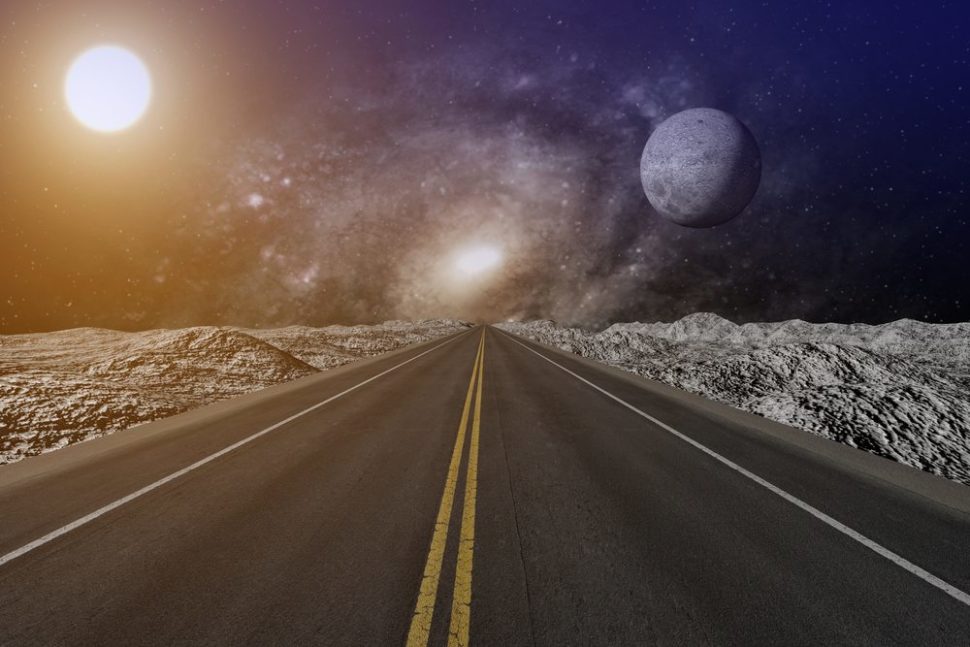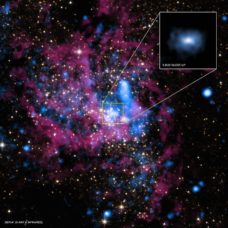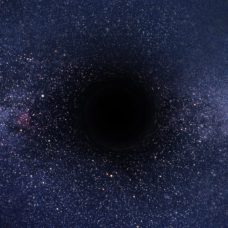A new theory claims that the universe isn’t expanding at accelerating rates, suggesting that it is “time” that’s increasingly slowing down and could one day come to a halt.
Astrophysicists think the observed recession of the galaxies doesn’t reflect movement with respect to a static space, but rather to the expansion of the universe.
In other words, galaxies don’t move in relation to space but instead are driven by the expansion movement of the universe itself. Apparently, this expansion is accelerating, leading the universe to end up in one of several possible scenarios.
Time's slowing down and will eventually come to an end, and the universe with it.Click To TweetThe ultimate fate of the universe (Big Crunch? Big Rip? Big Freeze?) is one of the enduring enigmas in modern physics.
But the universe could meet its demise in yet another uncanny way: time, which is already decelerating, would eventually stop altogether, says another theory.
How the Notion of Time Changed “Over Time”
Galileo Galilei was perhaps the first to consider using time as an empirical notion to mathematically connect and order measurements of objects’ movement.
But it was with Newton that time was used as a physical concept in order to determine the movement of cosmic bodies by measuring their position and velocity at successive moments.
Newtonian time was static and universal, flying like an arrow from point A to B, the same way for any observer.
That was until the early 1900s when Einstein challenged this principle with his Relativity theory and introduced time as the fourth dimension in the universe.
With Einstein, the concept of time lost its universality notion. No longer the same for everyone, it became more flexible and dependant on the observer’s movement and gravity.
Because of this elasticity, time started to become more of an “illusion” and the reality of the “now” blurry. The blurriness between the present, past, and future led us to entertain the idea of traveling in time.
In fact, technically you’re experiencing the past right now. You think you’re reading this article “now”, but you’re seeing it as it was in the past as light takes some time to reach your eyes from the screen.
It’s the same for all objects surrounding you, the greater their distance from you, the longer it takes light to get to you.
The illusion of the “now”, and the flow of time, it’s only our brain’s way to make things, including time, make sense.
As if that’s not enough, an outlandish theory adds another layer of mystery to time, claiming it’s slowing down and could stop completely at one point in the “future.”
The End of Time: Until Time Freezes us Apart
Since the late 1990s, scientists have come to conclude that the universe is growing at an ever-increasing rate. This implies, among other things, that space is not empty but rather filled with dark energy (or maybe not?) that drives this accelerating expansion.
Three researchers (Jose Senovilla, Marc Mars, and Raul Vera), at the University of the Basque Country and the University of Salamanca, have come up with the radical theory which tries to explain the accelerating expansion of the universe without including dark energy.
The major indication that the universe’s expansion is accelerating is supernovae appearing to be moving away from us. But the team says that’s only an illusion, that we’re getting away from nothing. Because time is decelerating, light is taking longer to get to us.
This research does not dispute the expansion of the universe but instead the acceleration.
“We do not say that the expansion of the universe itself is an illusion,” the scientists told the Telegraph (via Express). “What we say may be an illusion is the acceleration of this expansion – that is, the possibility that the expansion is, and has been, increasing its rate.”
If you’re wondering what would happen to us once time finally comes to a halt, everything “will be frozen, like a snapshot of one instant, forever.”
In related news, astrophysicists at Johns Hopkins have recently said their data suggest the universe is expanding faster than previously expected (9% faster). In light of the theory above, this could mean that time is slowing down even faster.



















Comments (0)
Most Recent